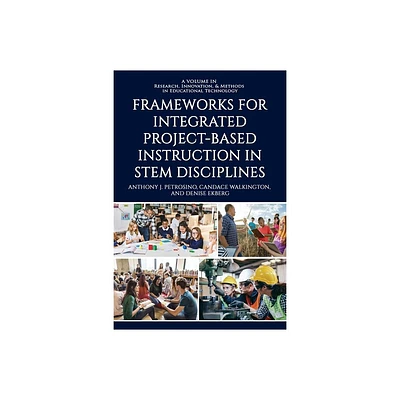Home
Educational Neuroscience for Literacy Teachers: Research-backed Methods and Practices Effective Reading Instruction
Loading Inventory...
Barnes and Noble
Educational Neuroscience for Literacy Teachers: Research-backed Methods and Practices Effective Reading Instruction
Current price: $180.00


Barnes and Noble
Educational Neuroscience for Literacy Teachers: Research-backed Methods and Practices Effective Reading Instruction
Current price: $180.00
Loading Inventory...
Size: Hardcover
*Product Information may vary - to confirm product availability, pricing, and additional information please contact Barnes and Noble
Bridging the world of reading instruction and applied cognitive neuroscience, this book presents research-backed reading instructional methods and explains how they can be understood through the lens of brain processes.
Dispelling myths about neuroscience, Spence and Mitra explore how brain-based research informs literacy research in a way that is clear and accessible to pre-service teachers. Chapters address theories of reading, social-emotional learning, phonological processes, embodiment, multilingualism, reading comprehension, and more. Featuring examples of instruction and consistent "Did you know?" and "Food for thought" sections, readers will come away with a greater understanding of the reading brain and how neuroscience can facilitate effective instruction.
Delving into the extent to which neuroscience can underpin reading research, this text is ideal for pre-service teachers, educators, and students in the fields of language arts and literacy, as well as cognitive neuroscience.
Dispelling myths about neuroscience, Spence and Mitra explore how brain-based research informs literacy research in a way that is clear and accessible to pre-service teachers. Chapters address theories of reading, social-emotional learning, phonological processes, embodiment, multilingualism, reading comprehension, and more. Featuring examples of instruction and consistent "Did you know?" and "Food for thought" sections, readers will come away with a greater understanding of the reading brain and how neuroscience can facilitate effective instruction.
Delving into the extent to which neuroscience can underpin reading research, this text is ideal for pre-service teachers, educators, and students in the fields of language arts and literacy, as well as cognitive neuroscience.










![RICA Test Prep Study Questions: Three RICA Practice Tests for the Reading Instruction Competence Assessment [2nd Edition]](https://prodimage.images-bn.com/pimages/9781628457056_p0_v1_s600x595.jpg)






